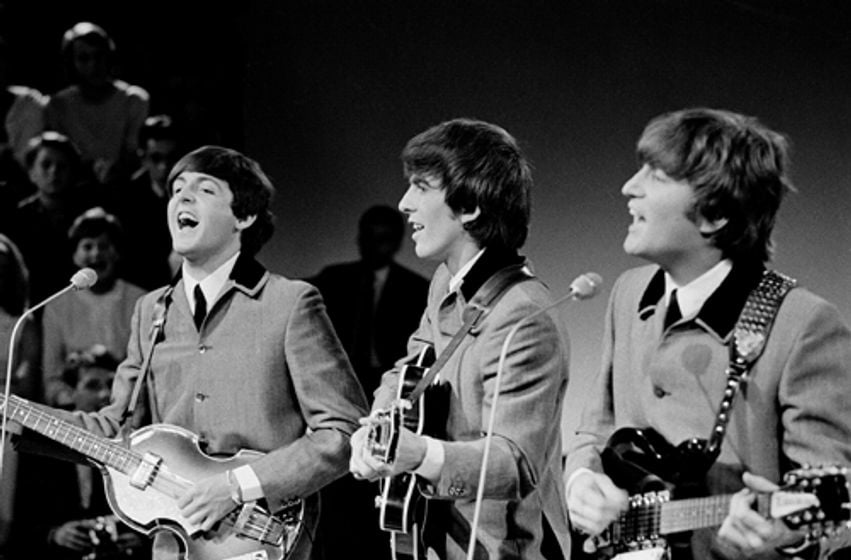Drugs are an essential part of The Beatles’ history. After a clean-cut couple of years donning suits on the Ed Sullivan Show and keeping their bowl cuts nice and neat, the sound and style of the Fab Four quickly changed when they began taking illicit substances. But the influence of drugs on Paul McCartney, in particular, extended beyond the music and into his belief system.
The Beatles’ growing interest in drugs can be felt just by listening to their music. In 1964, Bob Dylan had introduced them to weed for the first time, and the band later referenced him as influencing their next release, Rubber Soul. Not long after, McCartney was penning ‘Got To Get You Into My Life’ as an ode to the drug.
By 1965, the band’s experiences with drugs weren’t limited to marijuana. George Harrison and John Lennon had been introduced to LSD, and the drug began to shape their sound on the increasingly experimental Revolver and then, perhaps most notably, on their iconic 1967 release, Sgt. Pepper’s Lonely Hearts Club Band.
Despite Lennon’s protests, many believed that the title of ‘Lucy in the Sky with Diamonds’ was a covert reference to the drug that had completely altered their sound, pushing them towards something more psychedelic. Their style moved in this direction, too, as they swapped their well-fitted black and white suits for more colourful outfits with circular specs and bright ties.
There’s no doubt that the band’s love for drugs certainly influenced their songwriting sensibilities and their clothing style, too. But for McCartney, substance use also influenced his beliefs surrounding religion. It wasn’t LSD that altered his thoughts on the topic, though. Instead, it was a transformative experience with DMT.
During an interview with The Times, the legendary songwriter remembered a particular experience he had with DMT, a psychedelic that alters the mind and causes hallucinations. McCartney took the drug with a couple of friends, including gallery owner and art dealer Robert Fraser, and found that it changed his perception of religion.
“We were immediately nailed to the sofa,” he shared, recalling the experience, “And I saw God, this amazing towering thing, and I was humbled.” While the Beatle clarified that the experience didn’t necessarily “turn [his] life around,” he did consider it to be a “clue”. He also acknowledged that he does believe in “something higher.”
McCartney seemed aware that most people would merely dismiss his belief as a DMT-induced hallucination, but he reiterated that both he and Fraser were moved by the experience. “And anybody else would say it’s just the drug, the hallucination,” he shrugged, “but both Robert and I were like, ‘Did you see that?’ We felt we had seen a higher thing.”
Perhaps the hallucination had opened McCartney up to the possibility of a God or of some higher being, which he then adopted into his wider belief system. It might not necessarily have been the God that towered over him in his psychedelic slump, but the experience brought McCartney some understanding of something greater.
DMT might not have had a transformative impact on The Beatles’ sound like LSD did, but it certainly had a more personal impact on McCartney. The towering image of God may not have immediately turned him into a devout believer, but it certainly sparked a willingness to believe in something more.



